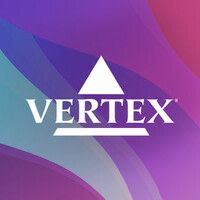预约演示
更新于:2025-05-07
Rho GTP酶
更新于:2025-05-07
基本信息
别名- |
简介- |
关联
4
项与 Rho GTP酶 相关的药物靶点 |
作用机制 Rho GTP酶抑制剂 |
在研机构 |
原研机构- |
在研适应症 |
非在研适应症- |
最高研发阶段临床前 |
首次获批国家/地区- |
首次获批日期1800-01-20 |
US20220380323
专利挖掘靶点 |
作用机制- |
在研适应症 |
非在研适应症- |
最高研发阶段药物发现 |
首次获批国家/地区- |
首次获批日期1800-01-20 |
作用机制 ROCK1抑制剂 [+1] |
在研机构- |
在研适应症- |
最高研发阶段终止 |
首次获批国家/地区- |
首次获批日期1800-01-20 |
4
项与 Rho GTP酶 相关的临床试验NCT02669849
A Phase 2b/3, Double-blind, Randomized, Placebo Controlled, Multicenter Study to Assess the Efficacy and Safety of VX-210 in Subjects With Acute Traumatic Cervical Spinal Cord Injury
The purpose of this study is to determine the efficacy and safety of VX-210 in subjects with Acute Traumatic Cervical Spinal Cord Injury. Secondary objectives include the specific evaluation of the effects of VX-210 on neurological recovery and daily function after spinal cord injury.
开始日期2016-07-01 |
申办/合作机构 |
NCT02053883
A Phase II/III, Double-Blind, Randomized, Placebo-Controlled, Multicenter Study to Assess the Efficacy and Safety of Cethrin in Subjects With Acute Cervical Spinal Cord Injury
This is a multicenter, randomized, double-blind, placebo-controlled Phase IIb/III study designed to evaluate the efficacy and safety of Cethrin as a treatment for acute cervical spinal cord injury. During the trial, high and low doses of Cethrin will be compared with placebo.
开始日期2015-07-01 |
申办/合作机构 |
NCT00500812
A Phase I/IIa Dose-Ranging Study to Evaluate the Safety, Tolerability, and Pharmacokinetics of BA-210 and the Neurological Status of Patients Following Administration of a Single Extradural Application of Cethrin During Surgery for Acute Thoracic and Cervical Spinal Cord Injury
This trial is a multi-center, open-label, dose-escalation study designed to evaluate the safety, tolerability and pharmacokinetics of Cethrin in two types of spinal cord injury patients: those with a complete cervical injury or a complete thoracic injury. Dose levels from 0.3 mg - 9 mg of Cethrin will be administered.
开始日期2005-02-01 |
申办/合作机构 |
100 项与 Rho GTP酶 相关的临床结果
登录后查看更多信息
100 项与 Rho GTP酶 相关的转化医学
登录后查看更多信息
0 项与 Rho GTP酶 相关的专利(医药)
登录后查看更多信息
2,895
项与 Rho GTP酶 相关的文献(医药)2025-05-01·Glia
Temperature Regulates Astroglia Morphogenesis Through Thermosensory Circuitry in Caenorhabditis elegans
Article
作者: Shao, Zhiyong ; Wang, Mengqing ; Zheng, Junyu ; Wang, Shaocheng
2025-05-01·Molecular and Cellular Endocrinology
Antioxidants improve the viability of diabetic bone marrow MSCs without rescuing their pro-regenerative secretome function
Article
作者: van de Vyver, Mari ; Maartens, Michelle ; Vlok, Mare
2025-05-01·Molecular Neurobiology
Molecular Mediators of Neutrophil Primary Granule Release Following Acute Ischemic Stroke and their Associated Epigenetic Modulation by HDAC2
Article
作者: Wang, Jing ; Wang, Rongliang ; Zhao, Haiping ; Li, Xue ; Fan, Junfen ; Luo, Yumin ; Li, Yuqian ; Geng, Xiaokun ; Yang, Zhenhong ; Yan, Feng
15
项与 Rho GTP酶 相关的新闻(医药)2025-03-03
·药研网
2025年2月19日,石药集团宣布将以1500万美元首付款,总计最高不超过12.25亿美元的里程碑付款,将其ROR1 ADC药物SYS6005的多个地区海外权益授权给Radiance Biopharma。
SYS6005是一款单克隆抗体药物偶联物,可与肿瘤表面的特异性受体结合,通过内吞作用进入细胞并释放毒素,达到杀伤肿瘤细胞的作用。临床前研究显示,SYS6005对多种癌症均有较好的抗肿瘤作用。这项重磅授权合作直接让ROR1站在了聚光灯之下。
ROR1靶点简介
受体酪氨酸激酶样孤儿受体1(Receptor Tyrosine Kinase-Like Orphan Receptor 1, ROR1)是ROR受体家族(ROR1和ROR2)成员,属于受体酪氨酸激酶(RTK)超家族。其结构可分为三个主要区域:胞外区(Extracellular Domain, ECD) 、跨膜区(Transmembrane Domain, TM) 、胞内区(Intracellular Domain, ICD)。
注:其结构包括胞外免疫球蛋白样结构域、富含半胱氨酸的Frizzled样结构域;跨膜结构域;胞内酪氨酸激酶样结构域(无典型激酶活性)、两个富含丝氨酸/苏氨酸的结构域和一个富含脯氨酸的结构域。
ROR1在胚胎发育中发挥关键作用,参与细胞迁移、极化和组织形成,但在正常成人组织中几乎不表达。然而,研究发现,ROR1在多种恶性肿瘤中异常高表达,包括慢性淋巴细胞白血病(CLL)、套细胞淋巴瘤(MCL)、乳腺癌、肺癌、胰腺癌和黑色素瘤等,使其成为肿瘤靶向治疗的潜力靶点。ROR1的异常表达与肿瘤细胞存活、增殖、侵袭和耐药性密切相关。
ROR1的信号传导机制
ROR1的信号通路复杂,主要通过与Wnt配体、其他受体或适配蛋白相互作用,激活下游信号网络:
01
Wnt5a/ROR1非经典通路
ROR1是Wnt5a的主要受体之一,与Wnt5a结合后,可形成ROR1/ROR2异源二聚体或同源二聚体,激活非经典Wnt信号通路。下游信号包括:
Rho GTPase家族(如Rac1、Cdc42):调控细胞骨架重组,促进肿瘤细胞迁移和侵袭。
PI3K/AKT/mTOR通路:抑制细胞凋亡,增强细胞存活。
MAPK通路:促进细胞增殖。
02
与EGFR/HER2协同作用
在乳腺癌和肺癌中,ROR1与EGFR或HER2形成复合物,增强其磷酸化水平,激活下游ERK和AKT信号,导致靶向治疗(如EGFR抑制剂)耐药。
03
Hippo-YAP通路调控
ROR1通过抑制LATS1/2激酶活性,阻止YAP磷酸化,促进YAP入核并激活促增殖基因(如CTGF、CYR61)。
04
免疫调节功能
ROR1可诱导肿瘤微环境中免疫抑制性细胞因子(如IL-6、TGF-β)的分泌,抑制T细胞活性,促进免疫逃逸。
注:WNT 与 FZD 结构域的结合会触发下游信号,通过抑制程序性细胞死亡来支持增殖、刺激迁移和肿瘤发展。靶向疗法,例如 CAR T、BiTE、mAb 和其他化合物与 ROR1 的外部亚基结合,并进一步抑制控制肿瘤细胞存活、增殖、迁移和发展的关键信号通路。
ROR1靶点药物进展
ROR1靶点因其在多种癌症中的高表达和与肿瘤恶性程度及预后不良的关联,被认为是肿瘤药研发的潜力靶点。
目前全球药企针对该靶点已开发出多款新药。ROR1靶点药物涵盖单双抗、多抗、ADC、CAR-T多个技术路线,但推进到临床阶段的ROR1药物并不算多,其中Zilovertamab和Zilovertamab vedotin进展较快均已进入临床3期。
01
单抗类药物的临床进展最为快速
Oncternal Therapeutics研发的Cirmtuzumab是一款靶向ROR1的人源化单克隆抗体。经过临床试验评估,在 CLL 患者中,这些试验表明肿瘤细胞数量减少,并且发现 cirmtuzumab 在靶向 ROR1 方面安全有效。目前,Cirmtuzumab与伊布替尼联用治疗慢性淋巴白血病(CLL)和套细胞淋巴瘤(MCL)的临床试验正处于Ⅰ/Ⅱ期阶段,与多西他赛联用治疗转移性乳腺癌的Ⅰ期试验也在进行患者招募。根据目前的文献,这种联合疗法显示出作为 B 细胞淋巴系统恶性肿瘤有希望的治疗选择的潜力。
02
ADC赛道最为热闹,2020年爆发三起大额BD
(1)2020年10月29日,基石药业则通过支付1000万美元的预付款,以及最高可达3.53亿美元的里程碑付款和额外的分级特许权使用费,成功引进了韩国生物制药公司LCB研发的ROR1靶向ADC药物LCB71。
(2)11月5日,默沙东宣布以27.5亿美元收购VelosBio,将其核心产品ROR1ADC药物VLS-101纳入囊中。
(3)仅一个月之后,勃林格殷格翰又宣布将以14.3亿美元(11.8亿欧元)收购NBE-Therapeutics。其收购重点在于获得后者研发的一款名为NBE-002的ROR1 ADC。
层层筛选过后,只有ADC药物开发ROR1靶点取得了突破。2024年年底,默沙东公布了ROR1 ADC药物MK-2140的2期临床数据,共36名患者中初治弥漫大B细胞淋巴瘤患者,经MK-2140联用方案治疗后,客观缓解率不同剂量组分别达到100%、93.3%和100%。ROR1药物自此迎来曙光。
2024年2月14日,石药集团在CDE药物临床试验登记与信息公示平台网站上,登记了一项ROR1 ADC药物SYS6005,在多种晚期恶性肿瘤中患者中,启动I期临床试验CTR20250511。2025年2月19日,石药集团宣布将以1500万美元首付款,总计最高不超过12.25亿美元的里程碑付款,将其ROR1 ADC药物SYS6005的多个地区海外权益授权给Radiance Biopharma。
03
CAR-T细胞治疗也是近年来研究的热点之一
ROR1作为CAR-T细胞治疗的新靶点,已经在多项临床试验中展现出令人鼓舞的初步结果。
例如,一项针对复发/难治性(R/R)侵袭性B细胞恶性肿瘤患者的1/2期、单臂、开放标签、多中心研究(ONCT-808-101)显示,ROR1 CAR-T细胞治疗在部分患者中实现了完全代谢缓解(CMR)或部分缓解(PR)。尽管在部分患者中出现了血细胞计数下降、肺炎等不良事件,但整体而言,ROR1 CAR-T细胞治疗在临床试验中展现出了良好的安全性和抗肿瘤活性。
总结
综上所述,作为一种极具前景的广谱抗癌靶点,ROR1的相关临床研究已经取得了令人瞩目的进展。目前,针对ROR1的单克隆抗体、CAR-T细胞疗法以及抗体偶联药物(ADC)等多种药物形式的研究正蓬勃发展,为肿瘤治疗开辟了新的途径。随着研究的不断深入和技术的持续创新,ROR1靶点在临床上的应用前景将更加广阔,有望为癌症患者带来更有效的治疗选择。
吉满生物根据市场需求和研究现状,推出稳定表达细胞系以及阳性对照抗体,可用于ROR1相关药物的体外效果评价,助力药物临床申报。
吉满生物
开拓靶向治疗新纪元,赋能全球药物研发,作为生物医药领域的技术先锋,吉满生物始终聚焦药物靶点开发核心环节,构建了覆盖基因编辑细胞模型、高活性蛋白及特异性抗体的全链条研发平台。
针对ROR1靶点治疗领域的技术瓶颈,我们已成功构建包含人源化、小鼠及灵长类等多物种的ROR1稳定表达细胞系,并同步开发出配套的参照抗体,形成从靶点验证到药效评估的一站式解决方案。
吉满生物依托自主知识产权的细胞工程平台、抗体和蛋白表达系统,我们成功的缩减了靶点开发周期,助力创新药企快速突破临床前研究阶段。
产品列表
数据展示
GM-C19169
Cynomolgus_ROR1 CHO-K1 Cell Line使用Anti-ROR1 hIgG1 Antibody(Zilovertamab/Cirmtuzumab)
流式验证结果
GM-C24550
H_ROR1 HEK-293 Cell Line使用Anti-ROR1 hIgG1 Antibody(Zilovertamab/Cirmtuzumab)
流式验证结果
GM-C24586
Cynomolgus_ROR1 CHO-K1 Cell Line使用Anti-ROR1 hIgG1 Antibody(Zilovertamab/Cirmtuzumab)
流式验证结果
联系我们
吉满生物(Genomeditech)成立于2011年,是专业从事生物科技服务和前沿技术研发的高新技术企业。吉满生物专注为生物药开发赋能,自主创立了国内知名的细胞系品牌-DDXCELL,目前已布局近400个热门靶向药靶点,超1000株现货单克隆细胞系,涵盖GPCR、细胞因子、免疫检查点、TAA等多领域,做到进口细胞的国产替代。此外,吉满生物还可在药物研发进程中提供一系列抗体、蛋白产品,旨在为客户提供高效的研发工具和解决方案!
扫码咨询
扫码找现货
抗体药物偶联物孤儿药引进/卖出临床结果
2025-01-06
·小药说药
关注小药说药,一起成长!
前言
抗体偶联药物(ADCs)是一种通过一个合理构建的连接子将细胞毒性小分子药物偶联到单克隆抗体上的复合物,可以向肿瘤内选择性地输送有效的细胞毒性药物。经过几十年的深入研究和开发,该领域取得了重大进展,自2000年美国食品和药物管理局(FDA)批准第一个ADC药物Mylotarg治疗CD33+急性髓系白血病(AML)以来,全球共有16个ADC获得批准。
值得注意的是,在2020年第四季度,有三项重磅交易涉及针对同一抗原ROR1的ADC。首先,CStone Pharmaceuticals和LegoChem Biosciences签订了ROR1 ADC“LCB71(CS5001)”的全球许可协议。然后默克收购了VelosBio及其ROR1 ADC“VLS-101”,勃林格殷格翰分别以27.5亿美元和14.5亿美元(合并预付款和里程碑付款)收购了NBE Therapeutics及其ROR1 iADC“NBE-002”,这些收购突显了ROR1在肿瘤学中的重要性及其作为ADC靶点的良好前景。
ROR1的结构和表达
ROR1是一种跨膜受体,包含细胞外部分、跨膜区和细胞内区域。细胞外部分包括免疫球蛋白样结构域(IG)、富含半胱氨酸结构域(CRD)和Kringle结构域(KD)。CRD通过与配体Wnt5a结合来调节非经典WNT信号,KD介导ROR1与其他受体的相互作用,如ROR2。
细胞内部分包括一个酪氨酸激酶结构域、两个富含丝氨酸/苏氨酸的结构域和一个富含脯氨酸的结构域。富含脯氨酸的结构域通过招募包含SH3结构域的蛋白质,包括HS1、DOCK2和cortactin,负责激活细胞迁移和增殖信号。富含丝氨酸/苏氨酸的结构域与衔接蛋白(如14-3-3 zeta)发生物理相互作用,导致对凋亡的抵抗。
ROR1主要在胚胎发生过程中表达,ROR1基因敲除对胚胎是致命的,表明ROR1在胚胎发生中起着关键作用。ROR1在大多数成人组织中不表达,除了一些高表达ROR1的脂肪组织、内分泌腺、胃肠道和未成熟B淋巴细胞,ROR1在这些成人组织中的功能目前尚不清楚。
ROR1在恶性肿瘤中的作用
许多研究表明,ROR1在恶性肿瘤细胞中高表达,其最初被鉴定为血液系统恶性肿瘤中的肿瘤胚胎基因。除了血液系统恶性肿瘤外,ROR1的异常表达也作为生物标记物和治疗靶点在多种实体瘤中被发现。
ROR1在乳腺癌中高表达,其与上皮间质转化(EMT)、肿瘤转移和侵袭性疾病有关。ROR1在肺癌细胞中的表达水平也很高,可作为肺腺癌患者的预后生物标志物。ROR1的沉默导致代表人肺腺癌的细胞系中的生长抑制。此外,还有关于ROR1在其他类型癌症中表达的报道,包括卵巢癌、结直肠癌、子宫内膜癌、胃癌、黑色素瘤和胰腺癌。
ROR1不仅在恶性细胞中异常表达,还参与对细胞增殖、存活和迁移重要的信号蛋白的激活。在CLL中,Wnt5a/ROR1通过ARHGEF家族衔接蛋白激活Rho GTPase RhoA和Rac1,Wnt5a还诱导HS1的酪氨酸磷酸化,导致ROR1依赖的细胞迁移。此外,Wnt5a/ROR1诱导NF-κB信号通路的激活,导致促炎症细胞因子如IL-6的自分泌调节。ROR1的表达水平与CLL的进展密切相关,使其成为预后的良好生物标志物。在肺癌中,ROR1参与c-Src和MET的激活,导致肿瘤细胞凋亡的抑制,ROR1还被发现是cavin-1和caveolin-1的支架蛋白,可激活肺腺癌中的AKT。在乳腺癌中,ROR1促进了PI3K/AKT通路的激活,高ROR1表达与疾病更严重的进展相关。总之,在许多类型的恶性肿瘤中观察到ROR1的异常表达和相关的促生长信号事件,使ROR1成为抗癌药物开发的一个有吸引力的治疗靶点。
ROR1靶向ADC的研究进展
鉴于ROR1在多种癌症中高表达,而在普通组织不表达或低表达的特性,药物研发人员开发了多种靶向ROR1的抗肿瘤治疗策略,其中ADC药物的进展较快,并且表现出良好的应用前景。
NBE-002
目前,大多数经批准的ADC都是通过赖氨酸或半胱氨酸残基将有效载荷与单克隆抗体化学偶联而产生的药物异质混合物。相比之下,针对下一代ADC,NBE-002的ROR1是通过人源化抗体(huXBR1-402)与蒽环类药物PNU-159682在预先设定的药物抗体比(DAR)下通过sortase a介导的位点特异性转肽反应进行酶结合而产生的,产生更纯净、更同质的药物,具有更稳定的生物物理和药代动力学特征。
SMAC技术利用Sortase A,一种源自金黄色葡萄球菌的转肽酶,可以催化含有寡甘氨酸的分子连接到具有序列基序的蛋白质(LPXTG)。PNU-159682是奈莫霉素的肝脏代谢物,可抑制DNA拓扑异构酶II,其效力比亲本分子高三个数量级。有趣的是,与其他有效载荷相比,基于蒽环类的连接子有效载荷通过SMAC技术的共轭效率更高,DAR在3.7到3.9之间,通过简单的链霉素亲和层析步骤可以有效地将DAR增加到4。
除了观察到NBE-002的直接抗肿瘤活性外,NBE-002能够增加T细胞对肿瘤的浸润,并将“冷”肿瘤转化为“热”肿瘤,使它们对针对PD-1和CTLA-4的检查点抑制剂产生反应。因此,NBE Therapeutics的ADC被称为免疫刺激ADC或IADC。为了测试NBE-002的效力,已经在不同的临床前癌症模型中评估了这种iADC,发现NBE-002在每个适应症中都显示出显著的抗肿瘤活性。NBE-002目前正在进行1/2期临床试验(NCT04441099),以评估晚期实体瘤,尤其是三阴性乳腺癌患者的安全性和耐受性。
VSL-101
与Adcetris、Polivy和Padcev类似, VLS-101利用蛋白水解可切割的连接子mc vc PAB,将靶向ROR1的单克隆抗体UC-961与微管蛋白聚合抑制剂单甲基auristatin E(MMAE)进行偶联。UC-961是一种人源化抗体,以高亲和力(Kd=2nM)结合到ROR1的域内表位,并通过阻断Wnt5a与ROR1的结合,对各种ROR1阳性肿瘤细胞具有直接细胞毒活性。
由于UC-961识别独特的表位,这种抗体在结合时会触发ROR1的明显内化,有利于向ROR1阳性肿瘤细胞传递细胞毒性有效载荷。VLS-101在体外模型中被证明能有效诱导细胞周期阻滞和凋亡,并在异种移植物模型中有效阻断体内肿瘤生长。在血液系统恶性肿瘤的一期研究(NCT03833180)中,VLS-101耐受良好,对晚期套细胞淋巴瘤(MCL)或弥漫性大B细胞淋巴瘤(DLBCL)患者有效,MCL组的ORR达47%(7/15),包括3例CR和4例PR;DLBCL组的ORR达80%(4/5),包括2例CR和2例PR。目前,一项针对实体瘤(包括乳腺癌和肺癌)患者的2期研究(NCT04504916)正在进行中。
LCB71(CS5001)
LCB71是另一种抗ROR1 ADC,由LegoChem Biosciences和ABL Bio两家韩国生物制药公司共同开发,基石药业获得了在韩国境外开发和商业化LCB71的专有权。LCB71使用了另一种酶介导的位点特异性偶联技术,这种偶联方法利用法尼基转移酶,该酶天然催化CaaX基序中存在的半胱氨酸残基的异戊二烯基化。
该技术利用法尼基转移酶的底物混杂性,引入香叶基酮焦磷酸(GKPP)基团,用于随后的烷氧基胺衍生物的化学选择性偶联。通过偶联β-葡萄糖醛酸键的吡咯苯二氮卓二聚体(dPBD),利用β-葡萄糖醛酸酶在肿瘤细胞和肿瘤微环境中的高表达,允许选择性切割和释放细胞中的游离PBD,最终导致DNA损伤和细胞死亡。
LCB71在Jeko-1(人套细胞淋巴瘤)和MDA-MB-231(人乳腺癌细胞)异种移植瘤模型中均表现出显著的抗肿瘤活性,且呈剂量依赖性。LCB71是一款有望在ROR1高表达的血液肿瘤和恶性实体瘤中都具有精准治疗潜力的候选ADC药物。
小结
ROR1在各种实体和血液肿瘤细胞中广泛表达,使其作为AD 药物开发的极具吸引力的重要靶点。由于独特的位点特异性偶联策略,NBE-002和LCB71都是具有给定DAR的同质ADC,这有利于生产制造。此外,两种ADC中的稳定连接子也提供了更好的药代动力学特征。尽管VLS-101的产品不是同质性的,可能存在类似于Adcetris、Polivy和Padcev的稳定性问题,但一项1期研究已经证明了MCL和DLBCL患者的安全性和临床疗效,是目前处于2期临床试验中的最领先的抗ROR1 ADC。无论如何,所有3个抗ROR1 ADC看起来都非常有前景,而最近的3个主要商业交易可能会促进针对ROR1的多种治疗方式的快速发展。
参考文献:1.Tyrosine Kinase ROR1 as a Target forAnti-Cancer Therapies. Front Oncol. 2021; 11: 680834.
2. Perspectives on the development of antibody-drug conjugates targeting ROR1 for hematological and solid cancers. AntibTher. 2021 Oct; 4(4): 222–227.
公众号内回复“ADC”或扫描下方图片中的二维码免费下载《抗体偶联药物:从基础到临床》的PDF格式电子书!
公众号已建立“小药说药专业交流群”微信行业交流群以及读者交流群,扫描下方小编二维码加入,入行业群请主动告知姓名、工作单位和职务。
并购抗体药物偶联物临床2期
2024-10-30
·精准药物
大家好,本周介绍一篇发表在Cell上的文章“Targeting Ras-, Rho-, and Rab-family GTPases via a conserved cryptic pocket”,通讯作者是来自加州大学旧金山分校的Kevan M. Shokat教授,其主要研究方向是利用化学遗传学等工具开发细胞代谢关键蛋白(尤其是激酶和GTP酶家族)的靶向小分子。
GTP酶(GTPase)家族成员在生命体中充当控制许多基本细胞过程的分子开关,包括多种亚家族分支:其中,Ras GTP酶参与增殖和迁移,其突变等异常与癌症和发育疾病密切相关;Rho GTP酶控制细胞骨架组织和细胞运动基础等功能;Rab GTP酶是最大的亚家族,协调细胞囊泡运输等过程。值得注意的是,GTP酶目前被广泛认为是“不可成药”的靶标,这主要是由于与激酶等家族相比,GTP 酶中核苷酸的结合相对较紧密且缺少变构位点。2013年,Shokat课题组在研究K-Ras时发现了一个隐蔽的变构口袋(Switch II口袋[SII]),获得了该蛋白靶向小分子开发方法的巨大突破,使靶向K-Ras(G12C)突变癌症的疗法得以快速开发。
然而K-Ras至今仍是一个独特的案例,因此目前其他GTP酶的靶向研究仍然存在较高难度。但在本文中,作者通过序列和结构比对系统地分析了GTP 酶家族的Ras、Rho和 Rab家族成员,发现大量GTP酶中均存在可靶向的Switch II口袋,尽管其他成员与K-Ras的序列同源性有限,但Switch II口袋的关键元件在 GTP 酶的 Ras、Rho 和 Rab 家族中是保守的,使研究者有望靶向这些GTP酶。
在实验中,作者选取了十种在过去研究中已经被优化以靶向治疗K-Ras(G12C)驱动肿瘤的Switch II口袋抑制剂,并将K-Ras中的G12C突变引入到与其具有结构相似性的同源甘氨酸上,以测试抑制剂的靶向效果。首先使用K-Ras的旁系同源物H-Ras和N-Ras作为模型进行测试, 发现K-Ras(G12C)抑制剂可以有效靶向 H-Ras(G12C)和 N-Ras(G12C)。随后作者将研究目标转移到与K-Ras关联更远的Ras家族GTP酶RalA(G23C)和 Rap1A(G12C),在体外和细胞实验中依然有良好靶向效果。
随后,作者将目光转向GTP酶其他亚家族Rho和Rab的成员,选取了Rho GTP 酶 Rac1 (G12C)和RhoA(G14C)以及Rab GTP酶Rab1A(S20C)和Rab5C(S30C)。结果表明相比于Ras家族成员,K-Ras(G12C)优化配体与靶向测试的Rho和Rab GTP 酶的Switch II口袋的匹配性偏差,因此作者注意到可以通过化学遗传学引入二级突变以加强结合。蛋白-配体晶体结构等实验数据证实,除了致病的G12C外,K-Ras(G12C)中的H95,Y96和Q99对于靶向结合该Switch II口袋具有重要贡献,因此将相似结构位置的残基突变为相同或性质相似的氨基酸可以增强Rho和Rab家族成员与待检测抑制剂的结合效果。
最后,除了利用蛋白相似性采取化学遗传学的方法实现靶向之外,作者还尝试利用GTP酶家族间Switch II的差异性开发优化的选择性配体。作者利用分子动力学模拟和量子力学模拟了divarasib和MRTX1257作为初始模板靶向Rab和Rho GTP酶的结构和相互作用优化,为选择性靶向这些蛋白的下一代药物设计提供了思路。
总的来说,本文通过保守的Switch II口袋对与K-Ras(G12C)有相似性的其他GTP酶家族成员实现了靶向修饰,证实了多重GTP酶的可靶向性,并结合化学遗传学和计算模拟增强了药物的靶向效果,是该领域药物开发的一步重要进展。
本文作者:FTY
责任编辑:WYQ
文章链接:
https://www.cell.com/cell/fulltext/S0092-8674(24)00908-5
原文引用:10.1016/j.cell.2024.08.017
声明:发表/转载本文仅仅是出于传播信息的需要,并不意味着代表本公众号观点或证实其内容的真实性。据此内容作出的任何判断,后果自负。若有侵权,告知必删!
长按关注本公众号
粉丝群/投稿/授权/广告等
请联系公众号助手
觉得本文好看,请点这里↓
分析
对领域进行一次全面的分析。
登录
或

生物医药百科问答
全新生物医药AI Agent 覆盖科研全链路,让突破性发现快人一步
立即开始免费试用!
智慧芽新药情报库是智慧芽专为生命科学人士构建的基于AI的创新药情报平台,助您全方位提升您的研发与决策效率。
立即开始数据试用!
智慧芽新药库数据也通过智慧芽数据服务平台,以API或者数据包形式对外开放,助您更加充分利用智慧芽新药情报信息。
生物序列数据库
生物药研发创新
免费使用
化学结构数据库
小分子化药研发创新
免费使用




